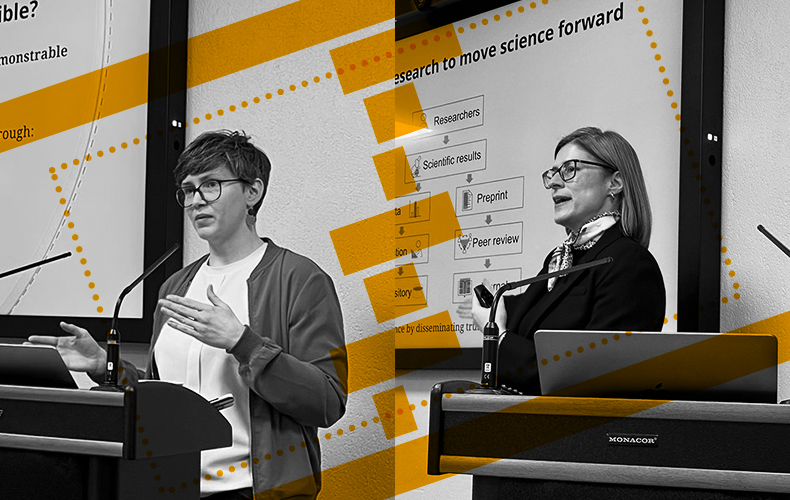18 June 2020 – A new EMBO policy report explores options for coordinating approaches to the governance of research integrity in Europe. The aim is to improve the handling of allegations of research misconduct and to develop a consistent approach to address research misconduct in Europe. “Governance of Research Integrity: Options for a coordinated approach in Europe” presents the results of an analysis by staff of the EMBO Science Policy Programme.
A number of national and institutional guidelines, frameworks and codes for research integrity have been developed in many European countries, and the European Code of Conduct for Research Integrity sets out common principles for those documents. But the handling of cases of research misconduct, mostly under the responsibility of research institutions, is heterogeneous, with the effect that the level of thoroughness and objectivity of investigations is inconsistent across Europe.
“Europe presents a variety of approaches to research integrity and misconduct and this makes it difficult particularly to handle cases of misconduct in international research projects or when researchers move to another country, which have now become the norm. A European body is an option to support institutions in Europe to deal with research misconduct in a consistent way, and to preserve the quality of European research”, according to Sandra Bendiscioli, Senior Policy Officer at EMBO and lead author of the report.
The authors’ work was supported by analyses conducted at a workshop including experts in research integrity and research policy, institutional directors, funders, and publishers. The workshop, held in January 2019, allowed the experts to work through several options for establishing European bodies for investigation, oversight, or advising to complement existing national bodies for research integrity, or to substitute for them where they do not yet exist.
The experts further explored the advantages and disadvantages of each model for institutions and researchers. “European research institutions are often unprepared to respond to allegations of research misconduct. Some countries have national offices to support institutions, but, many times, institutes alone are responsible for carrying out investigations. A European body could support them in this, and ensure that all cases are addressed more objectively and consistently”, says Michele Garfinkel, Head of the Science Policy Programme at EMBO, who co-authored the report.
In addition to the workshop, the study was supported by interviews with additional experts, as well as reviews of academic literature, and of current approaches to mitigating research misconduct by institutes, funders, and publishers. An earlier version of the report was reviewed by several of the workshop participants.
The report includes an analysis of the current systems for the governance of research integrity in a number of countries, and identifies gaps that could be addressed with a more coordinated approach in Europe. It further explores the advantages and disadvantages of each role for such a body, as well as the pros and cons of different possible structures and funding sources. It also looks at the implementation of a possible European body by a number of European organizations already active in the area of research integrity.
Other possible mechanisms to reach a more consistent approach to address misconduct are also discussed in the report, including the coordination of procedures used by research performing organizations, funders and publishers.
The full version of the report is available as a PDF file at:
www.embo.org/documents/science_policy/governance_of_ri.pdf
EMBO Science Policy Programme:



